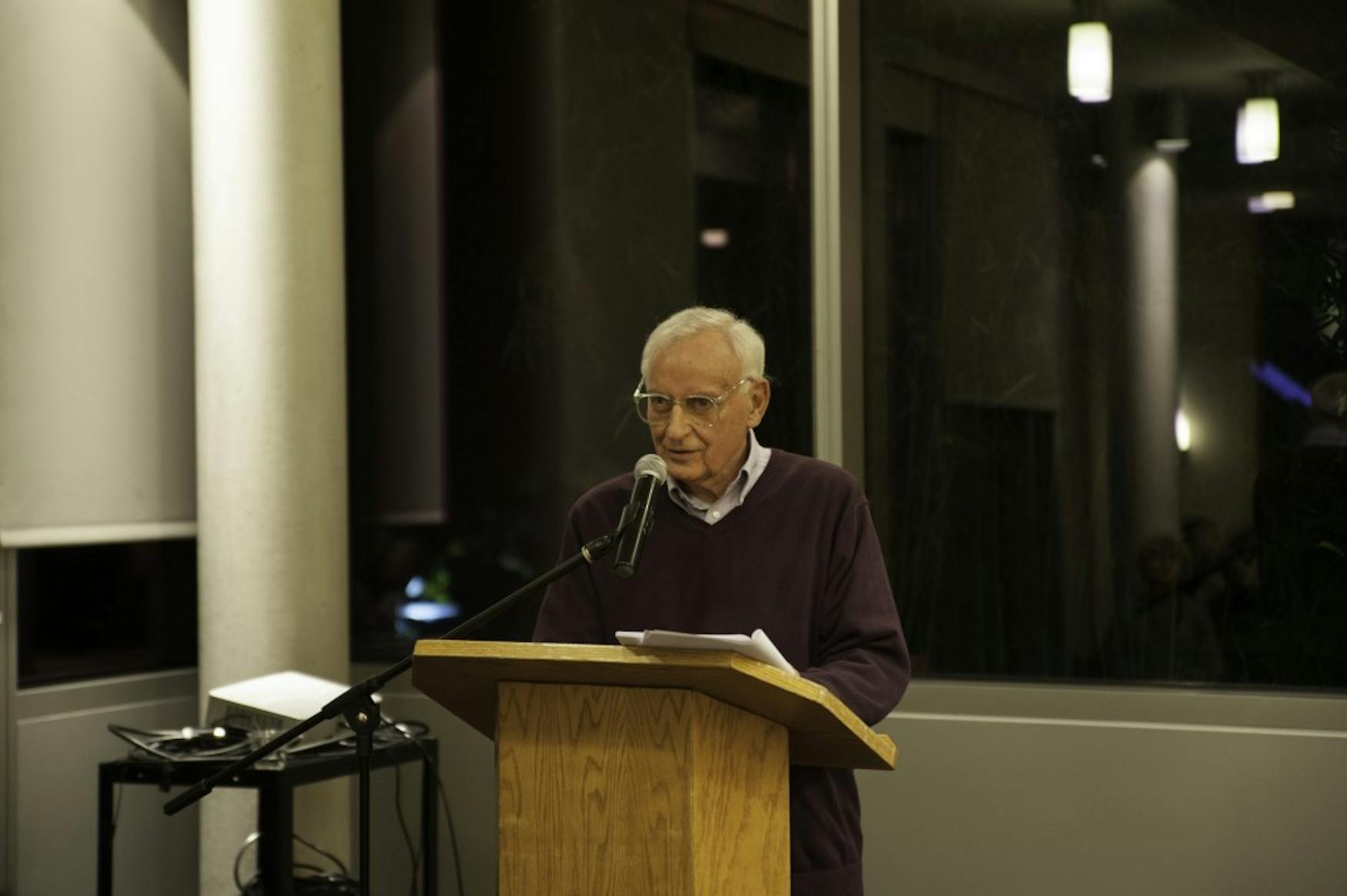Doctor speaks about his childhood in Nazi Germany
Peter Schuntermann was seven years old in the fall of 1941. While buying groceries with his mother near their home in Hamburg, he noticed a brown-eyed girl looking at him. When he asked his mother why the girl wore a bright yellow star on the breast of her dark coat, she urged him to be quiet.
Several decades after fleeing Germany to pursue a medical career, Schuntermann spoke of this chilling experience at an event hosted by the Center for German and European Studies on Thursday evening.
“Where I grew up there was a conspiracy of silence,” said Schuntermann in reference to both his upbringing as a member of a conservative nationalist family and the collective failure of German society to speak up against the atrocities of the Nazi party.
As he traced his early years, Schuntermann revealed details about himself and his family members that gave the audience, many of them children of Holocaust survivors, the other side of Germany’s tragic story.
His father, Schuntermann explained, was a civil servant when the Nazis came to power and he found himself committed to the administration by accident. He was later drafted into the occupation forces in Ukraine. As the war brewed and the deportation and systematic extermination of Jews in Europe began, Schuntermann’s family inadvertently followed the atrocities like a shadow.
In 1938 the German government relocated his family to an evacuated Jewish neighborhood, a practice that became normal as Jewish families were forced out of their homes and into ghettos. Schuntermann said he and his young sister grew up haunted by questions about the children that played in the sandbox before them.
After Schuntermann’s father was drafted, the family moved again. This time, it was across the street from the Lodz Ghetto, the second largest ghetto in Nazi Europe meant to confine and segregate Jews. He told members of the audience about the tall barbed wire that wrapped around the ghetto, which he peered at every day on his way to school.
“When we took the trolley that passed by the ghetto, the people sitting around me had their heads down and a hush fell over the passengers,” said Schuntermann. “I learned to avoid asking questions that adults avoided talking about.”
It was only decades after returning to Germany that Schuntermann was given answers to the questions of his childhood. The Jewish family that previously lived in his home was murdered in Auschwitz, and most of the people in the Lodz ghetto were killed in the Chelmno death camp.
Brandeis students, faculty and community members filed into the small Mandel Reading Room where the event was held, and more chairs had to be brought in to accommodate the growing audience.
At the end of Schuntermann’s talk, more than 10 of the 50 individuals in the room stood up to share their Holocaust-related memories.
Some spoke of how their parents escaped death camps and fled to America.
One woman, Aliana Brodmann von Richtofen, shared that only on his deathbed did her lifelong romantic partner reveal that he had been a mobile shooting commander in the Nazi army.
“Sometimes it’s too late to ask questions to the people you want answers from,” said Brodmann von Richthofen. “It’s really painful.”
Prof. Sabine von Mering (GRALL), who organized the event, remarked on the number of people who shared stories that generations before them had kept silent.
“My mother’s generation of Germans was taught by Nazis,” said von Mering. “This generation — the children of the Holocaust — is the generation that wants to talk.”
The event was held on the 79th anniversary of Kristallnacht, the Night of Broken Glass that left Jewish synagogues, homes and businesses across Eastern Europe destroyed.
Schuntermann, as well as several members of the audience, expressed hope that Thursday’s event was a way for both perpetrators and victims of the Holocaust to move forward — others disagreed.
“I don’t think anyone can ever come to peace with what happened,” said one member of the audience. “I don’t think you can explain it.”



Please note All comments are eligible for publication in The Justice.